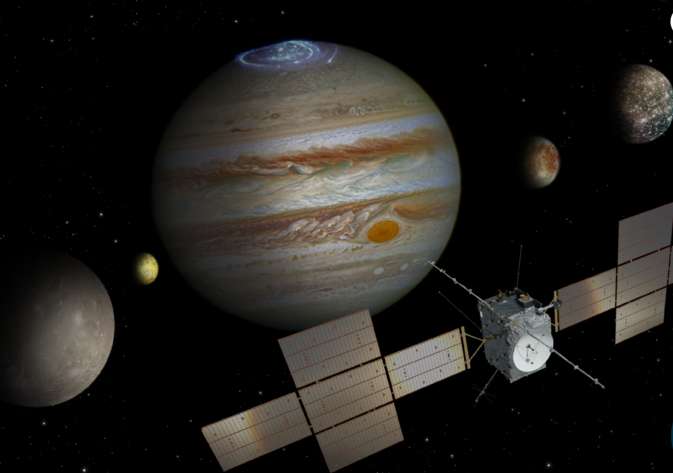Planetary scientists from the University of Leicester are part of a team involved in the launch of a mission to explore Jupiter and its moons.
The European Space Agency’s Jupiter Icy Moons Explorer (Juice) satellite, launches today (Thursday, April 13) on an Ariane 5 rocket from Europe’s Spaceport in Kourou, French Guiana, in South America.

It will observe the giant gas planet and its three large ocean-bearing moons: Ganymede, Callisto and Europa. These moons are said to be crucial to understand if life could ever have existed beyond Earth.
Professor Emma Bunce is Director of the Institute for Space at the University of Leicester has predicted that the data Juice returns will be “incredible.”
“The JUICE mission represents the next logical step in our exploration of potentially habitable worlds in the outer solar system,” she said.
“The JUICE spacecraft will do that via multiple flybys of Europa, Ganymede and Callisto, and eventually from a dedicated orbit at Ganymede towards the end of the mission. After many years of hard work from science, engineering, and industry teams, we are so excited that the JUICE mission is finally ready to launch and start its long journey to the Jupiter system. We will patiently await the incredible data that we expect to receive from 2031, and we are confident that it will absolutely be worth the wait!”
The University of Leicester planetary scientists will use remote sensing from JUICE, across the electromagnetic spectrum from the ultraviolet to the sub-millimetre and radio, to understand how energy and material flows through the complex atmosphere of Jupiter, from the churning colourful cloud-tops to the dancing auroral lightshows of the ionosphere, and vice versa.
Professor Leigh Fletcher has been involved in the JUICE mission since 2008, and is one of three interdisciplinary scientists (IDS) for the JUICE mission, and the only one based in the UK.
Professor Fletcher said: “JUICE provides a means of probing inside potentially-habitable ocean worlds of our solar system for the first time, down into the deep, dark, hidden oceans that might be the most suitable abodes for life in our Solar System beyond Earth,” she said.
If JUICE can reveal that these distant icy worlds provide genuinely habitable environments, then it has profound implications for the continued search for life, far beyond the classical ‘goldilocks zone’”.






